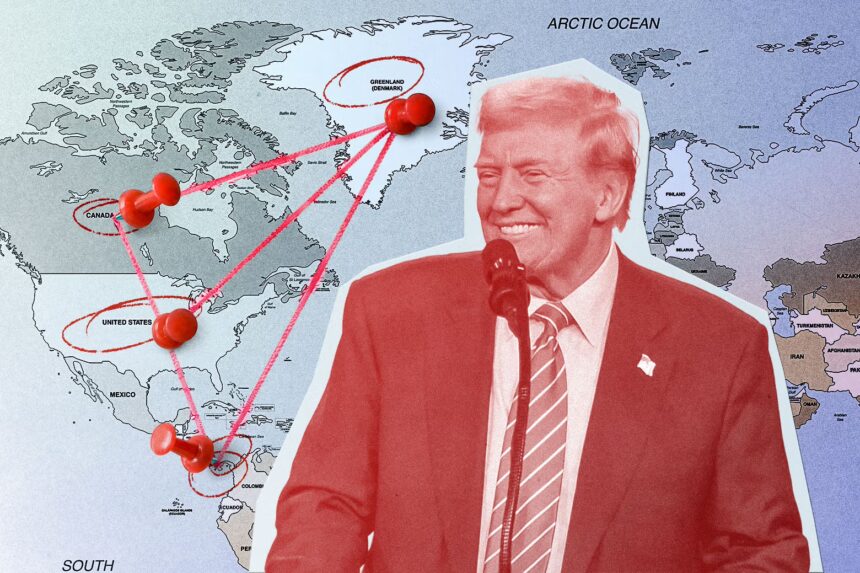In this article, the author describes how Donald Trump, even before assuming office, repeatedly suggested that Canada should become the 51st state, initially prompting Canada’s ambassador to the US to dismiss his remarks as little more than joking. Yet Trump’s expansionist rhetoric—encompassing Greenland and the Panama Canal—has grown serious enough that Canadian politicians have felt compelled to denounce it publicly, and EU leaders have invoked their mutual-defense clause for Greenland, a self-governing Danish territory. Though the idea of invading Canada is ostensibly off the table, the threat of “economic force” remains, while Trump pointedly refuses to rule out a military approach for reclaiming the Panama Canal or annexing Greenland. The article draws parallels between this “Donroe Doctrine,” as Trump’s supporters jokingly call it, and the original Monroe Doctrine, which aimed to keep European powers out of the Western Hemisphere. Meanwhile, Trump’s allies in Congress insist that Canadians, Panamanians, and Greenlanders should be honored by the prospect of becoming Americans, despite clear evidence—an 82 percent rejection in a Canadian poll—that such an idea holds little appeal outside the US.
From a historical standpoint, the author emphasizes that forcibly taking over a neighboring country has long been recognized as one of the most dire signals in world politics. The article points to precedents such as Germany’s violation of Belgium’s neutrality in 1914, which helped propel the UK into the First World War, and the Allies’ failure to protect Czechoslovakia in 1938, a decision that was soon recognized as a catastrophic example of appeasement. By threatening Greenland, Panama, and Canada, Trump appears to be playing into the hands of Russia and China, both of which have sought to justify their own territorial ambitions, whether in Ukraine or Taiwan. The author argues that such rhetoric undercuts the moral and strategic authority of the Western alliance, because it suggests that Washington would itself break international norms for reasons of “national security” or “manifest destiny.” Although it remains unlikely that the US would truly wage war on Greenland or Canada, the damage done to America’s standing and alliances is already significant, and the author concludes that this erosion of trust and shredding of diplomatic conventions constitutes a genuine tragedy rather than mere comedic bluster.
Read more here.







